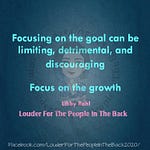Transcript of a tangent I went on
So I'm sitting here and I'm talking about my hypothesis on the the way many people who are autistic struggle with superego.
The id is just, “I want”. It's not concerned with anything beyond “I want”. The ego goes, “I can or can't”. You know, “I want this. Is it even possible for me to have this?” The superego goes, “okay, I want. I can have this. Should I?”
And I hypothesize that one of the reasons we struggle so much with superego is because our id is very rarely even met. We are told we're not even allowed to want the things that we want. So we don't get to.
We don't get to, you know, even get the ego satisfied. We are constantly. We spend our entire lives, our entire existence trying to get our needs met in a world that refuses to even acknowledge most of us.
And you know, and you add that to the fact that we are constantly infantilized and we are never allowed to use our super ego.
Look at Autism Speaks, which has somehow made itself basically the end all, be all and full freaking voice on how we treat and respond to and accommodate autism in the United States. And they don't have any autistic voices in making these decisions.
We're not allowed to go “should”. We're not allowed to make these decisions. We struggle with them inherently and then we're not even allowed to use them. And then we get vilified for our difficulty using them. It is a vicious cycle of eugenics and we have no excuse whatsoever.
Autism always existed. It's just now we have a name for it, just like cancer always existed. We used to call it the wasting disease because we didn't know what it was. There was a time that we thought that the position of the sun could give you boils on your. Okay, okay, yeah, that one's kind of true. Sunburns. But, you know, I mean, medicine is always advancing. We are always learning new things.
So we are simply learning more about autism. We didn't even begin really looking into what it was until about 30 years ago. 30 years ago! Autistic people have existed as long as humans have. Have. Look at Alan Turing. Look at how many people in history that we can retroactively go back and go, “yeah, no, they have all the ‘tism”. you know, I mean, Albert Einstein very likely was. A lot of these advancements that we have simply cannot happen with a neurotypical brain. It takes the ability to hyper focus like that to learn to the degree a lot of other people will lose focus. They will stop learning because they aren't interested anymore, you know, and so it's just.
It's this vicious cycle. But, yeah, I. I think that there, there has to be a correlation there. And I'm very interested to see, once we start, if. No, once we start actually taking an unbiased, scientific look at what autism is and how it presents in people, I think that, you know, maybe 50 years from now, what I'm saying now might be medical fact. Who knows? What do you think? Sound off.





